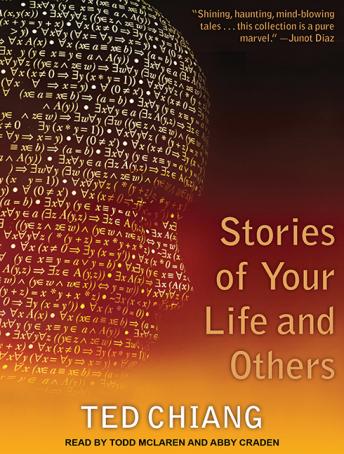


Many philosophers, such as Immanuel Kant, emphasize how important hope is to action. The question is: would you do the same? If you knew that your choice would end in such incredible grief and desolation, would you still commit to that path? Does knowing how something ends ruin the present? She knows that she will meet her husband, they will have a child, and that child will die young from some incurable disease.ĭespite knowing this, she has the child anyway. She starts to see, with certainty, her entire life path, as well as a great tragedy up ahead. Louise learns this language and comes also to see time in this way.

The aliens act, knowing fully well what their actions will do. They see the past, present, and future as a block, and they see also their small role within that. Like would it reconstruct you if be had to this sentence.Īs the plot progresses, we find out that the aliens not only communicate like this but are somehow able (and we must suspend disbelief here - although not by much) to see time from above, as a whole. It is only when you read the sentences as a whole that sense can be made of them. Rather, the verbs, nouns, adjectives, subjects, objects and so on are all jumbled up. We learn as the story moves on that these aliens do not write in a linear manner. A linguist, Louise Banks, is called in to decipher their strange language. An alien way of seeing thingsĬhiang’s story introduces an alien species that arrives on Earth with no obvious or discernible reason.
THE STORY OF YOUR LIFE BY TED CHIANG MOVIE
This is one of the many philosophical questions raised in the movie Arrival and the incredible short story by Ted Chiang it is based on, “The Story of Your Life.” It concerns the role of foreknowledge in our actions. What if you knew your best friend would betray you in three years’ time? Or that your boss is going to fire you tomorrow? What if you knew the day of your death? Now, imagine how different things would be if you knew, with perfect accuracy, everything that would happen in your life. The result is that when we choose any action or decide on any path, we usually do not give much meaningful thought to the possible future outcomes or implications of that choice. Humans are experts at either utterly ignoring what might happen in the future or being embarrassingly bad at basic probability. How would you behave if you had a flashing statistic saying, “ One percent of the population will die in a car crash,” every time you turned on the ignition? Or how would you feel if, as you got married, someone piped up from the back, “There’s a high chance this won’t last!”? And would you stop playing the lottery if you knew that you had a greater chance of being killed by a tornado, struck by lightning, or even hit by a meteorite than winning? Imagine what life would be like if you spent the entire time dwelling on the probabilities of how things might turn out. Our edition will be oversize, printed in two colors throughout, with a die cut dust jacket (our first ever!), featuring a wonderful design and interior artwork for each story by Jacob McMurray.Ignorance is not only bliss it is necessary. Combining scientific curiosity and narrative intricacy, Ted Chiang's award-winning collection explores the boundaries between reason and faith, between determinism and our ability to choose, between words and the concepts we try to describe with them. Students on a college campus make a political statement by disabling their ability to recognize beauty. A man endures the death of his wife at an angel's hands, but must learn to love God in order to be reunited with her in the afterlife. Subterranean Press is proud to announce the signed limited edition of Ted Chiang’s landmark collection, Stories of Your Life and Others.Ī woman learns an alien language that enables her to see her future. Dust jacket and interior illustrations by Jacob McMurray


 0 kommentar(er)
0 kommentar(er)
